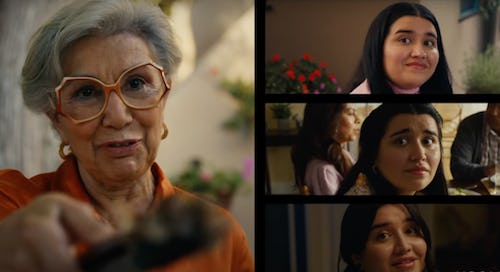
Recently, the fitness app Noom has been roasted (like that pork rib it doesn’t want you to eat) all over social media for hiring untrained “health coaches” and mishandling clients with eating disorders. Even though the company was founded in 2008, it really started to take off during the pandemic, when many of us were worried about staying active and not overeating. Since then, Noom has advertised itself as a woke “digital health” company that uses coaching and customized psychology to change our harmful food habits. Its recent advertising, however, makes it look like an elaborate fat-shaming scheme.
This is how the app works: It asks you a series of questions and creates a personalized diet plan, pairs you with a “health coach” and generates a psychological theory and timeline for your weight loss, according to the Financial Times, all for $60 a month. This theory might as well be called a Trauma Fabricator, because the app apparently psychoanalyzes you and your childhood memories to determine where your unhealthy relationship with food is rooted. Their most recent commercials brag about this feature.
In one ad, a sweet old woman serves her grandchild a big, juicy pork rib and the daughter vaguely shakes her head. “Made with love!” the grandma says in a Hispanic accent. The sequence repeats. Naturally, my first thought was this is so damn sweet and also that kinda looks like my abuela. To my disdain, the commercial ends with the now grown grandchild using the Noom app and coming to a disturbing conclusion: “I’ve been dealing with a food pusher!” she says, both haunted and incredulous.
My first thought was that whoever is in charge of Noom’s advertising must have been active on the darker corners of Tumblr. I’m sorry, but just like having a miscommunication with a friend doesn’t automatically make them a serial gaslighter, I’m not about to call my grandmother a “food pusher” for feeding me.
Also, can we talk about how insulting their use of a Latinx family is for this particular ad? As a Mexican immigrant, I know for a fact that food is a sacred form of love for my abuela — and I doubt that overindulging on her meals every so often is significantly deterring my health now. I was perturbed by what this Noom ad was suggesting: that our grandmothers are enemies in our quest for good health? Or worse, that the way that we culturally express affection is the reason we are dissatisfied with our bodies?
Another ad shows a sequence of a man who finishes all the food on his plate time after time and ends with another Noom-induced epiphany: “I’ve been conditioned to finish my plate since childhood?!” he exclaims, in the same tone of voice as someone who discovers they’ve just been cheated on by their spouse.
Again, I struggle to comprehend why it was necessary to make the connection between our childhoods and a dieting plan. There’s a difference between wanting to break habits you no longer want — which is a good thing — and placing all the blame on your past for being dissatisfied with your body now. This feels manipulative and perhaps like it involves more anguish than necessary on an already challenging road to working on our bodies. Our relationship to food is fluid. It’s also deeply personal and interpersonal, not just a means by which we gain and lose weight.
My issue with Noom boils down to how they’re presenting themselves as an anti-dieting app that uses science to help people lose weight. It feels, instead, like they’re fat-shaming us by implying that our relationship to food is solely a product of trauma.
In most ways, they’re just like any other dieting campaign. What makes them worse, in my mind, is that they’re willing to slander our abuelas to make sales.







